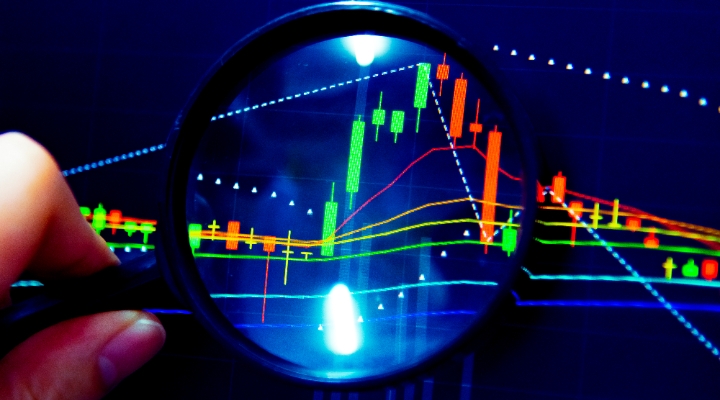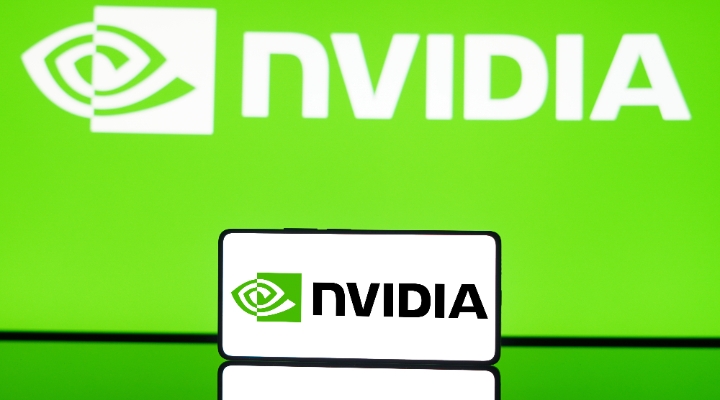
Tesla (TSLA) is set to release its second-quarter earnings report on July 23 after the close of US trading. Here's Morningstar's take on what to look for in Tesla's earnings report and the outlook for its stock
What to Watch for in Tesla's Q2 Earnings
Tesla is the most famous electric car manufacturer in the world, and its brand is almost instantly recognisable. However, the company faces some very interesting headwinds.
Indeed, Tesla's quality control, pricing, battery technology, and self-driving innovation will all affect its market share. In addition, the public profile (and very public opinions) of chief executive Elon Musk mean Tesla is rarely out of the headlines – even indirectly. As fellow manufacturers do battle in this highly competitve space and attempt to capitalise on the changing consensus around electric vehicles, we've assembled a list of what to look out for in Tesla's results next week.
Companywide Operating Profit Margins
Tesla's companywide operating profit margins contracted year over year and sequentially in the first quarter. While we expect another year-over-year decline in the second quarter, we will look at how margins fared versus the previous quarter to see if the improvement management alluded to during its first-quarter earnings call is manifesting.
Affordable Vehicle Update
Management confirmed it is working on a lower-priced vehicle, which we expect will begin to sell by the end of 2025. We will look for an update on the vehicle's price, timing, and specs. Our thesis is that this vehicle will generate the next wave of deliveries growth for Tesla, so we will see if our forecast for larger deliveries growth in 2026 remains on track.
Full Self-Driving Software Update
In our view, FSD-assisted software can be a differentiator in encouraging a consumer to buy a Tesla versus other luxury autos. We will look for an update from management on FSD adoption. However, with next month's Robotaxi event, management may prefer to wait to share these details.
Energy Generation and Storage
Management expects this business to grow at least 75% in 2024 versus 2023, largely driven by Megapack (larger batteries) demand. While we already know Tesla delivered a record 9.4GWh of energy storage products in the second quarter, we will see how this segment's profits and profit margins ended with the record volumes. Our thesis is that this business will become increasingly important to Tesla's total profits over the next several years, as it will generate faster profit growth than the automotive business.
Key Morningstar Metrics for Tesla
• Fair Value Estimate: $200.00
• Morningstar Rating: 3 stars
• Morningstar Economic Moat Rating: Narrow
• Morningstar Uncertainty Rating: Very High
Fair Value Estimate for Tesla
With its 3-Star rating, we believe Tesla's stock is fairly valued compared with our long-term fair value estimate of $200 (£154.02) per share. We use a weighted average cost of capital of just under 9%. Our equity valuation adds back non-recourse and non-dilutive convertible debt. We believe Tesla's deliveries will be slightly higher in 2024 than the 1.81 million in 2023. We anticipate lower average selling prices, as the company will likely have to cut prices in key markets like China, in line with peers. We forecast automotive gross margins will be 19% in 2024, in line with 2023 results.
In the longer term, we assume Tesla will deliver nearly five million vehicles per year in 2030. This includes fleet sales, an expanding opportunity for the firm. Our forecast is well below management's aspirational goal of selling 20 million vehicles by the end of this decade. However, it is nearly three times the 1.8 million vehicles delivered in 2023.
Economic Moat Rating
We award Tesla a Narrow moat based on its intangible assets and cost advantage. The company's strong brand cachet as a luxury automaker commands premium pricing, while its EV manufacturing expertise lets it make its vehicles more cheaply than competitors.
By focusing on the luxury auto market first, Tesla generated tremendous publicity. This encouraged strong demand for its subsequent cheaper vehicles, such as the Model 3 and Model Y. As other new vehicles are launched, such as the Cybertruck or the platform that will produce the affordable SUV (known as the $25,000 vehicle), we expect the company's strong brand will continue encouraging demand.
Tesla's proprietary technology contributes to its competitive advantage. This form of intangible assets applies to EVs due to their innovative, highly engineered nature, and because patents for EV technologies hold somewhat less value since competitors can create similar products. Since launching the Model S in 2012, Tesla has been the industry leader in electric vehicles. The company invests nearly 6% of sales in R&D, well ahead of the competition on a miles-per-kilowatt-hour basis, and it continues to improve other vehicle specs such as power. Tesla is also investing heavily in its proprietary autonomous vehicle technology and building one of the world's largest supercomputers to train self-driving artificial intelligence. We think the firm will maintain its proprietary technological advantage.
Read more about Tesla's economic moat
Financial Strength
Tesla is in excellent financial health. Cash, cash equivalents, and investments stood at $26.9 billion and far exceeded total debt as of March 31, 2024. Total debt was around $4.8 billion, while total debt excluding vehicle and energy product financing (nonrecourse debt) was a little more than $50 million.
Tesla has historically used credit lines, convertible debt financing, and equity offerings to raise capital to fund its growth plans. In 2020, the company raised $12.3 billion in three equity issuances. We think this makes sense, as funding massive growth solely through debt adds additional risk in a cyclical industry.
Read more about Tesla's financial strength
Risk and Uncertainty
We assign Tesla a Very High Uncertainty Rating, as we see a wide range of potential outcomes for the company. The automotive market is highly cyclical and subject to sharp demand declines based on economic conditions. As the EV market leader, Tesla is vulnerable to growing competition from traditional automakers and new entrants. As new lower-priced EVs enter the market, the firm may be forced to continue to cut prices, reducing its industry-leading profits. With more EV choices, consumers may view Tesla less favourably.
The firm is investing heavily in capacity expansions that carry the risk of delays and cost overruns. The company is also investing in R&D to maintain its technological advantage and generate software-based revenue, with no guarantee these investments will bear fruit. Tesla's CEO effectively owns a little more than 20% of its stock and uses it as collateral for personal loans, which raises the risk of a large sale to repay debt.
Tesla faces environmental, social, and governance risks. As an automaker, it's subject to potential product defects that could result in recalls, including its autonomous driving software. We see a moderate impact should this occur. Another risk involves employee retention. If Tesla can't retain key employees like CEO Elon Musk, its favourable brand image could decline. Should the company be unable to retain production line employees, it could see delays. We see a low probability but moderate materiality for both risks.
Read more about Tesla's risk and uncertainty
TSLA Bulls Say
Tesla could disrupt the automotive and power generation industries with its technology for EVs, AVs, batteries, and solar generation systems.
Tesla will see higher profit margins as it reduces unit production costs over the next several years.
Tesla's full self-driving software should generate growing profits in the coming years as the technology continues to improve, leading to increased adoption by Tesla drivers and licensing from other auto manufacturers.
TSLA Bears Say
Traditional automakers and new entrants are investing heavily in EV development, resulting in Tesla seeing a deceleration in sales growth and cutting prices due to increased competition, eroding profit margins.
Tesla's reliance on batteries made in China for its lower-price Model 3 vehicles will hurt sales as these autos will not qualify for US subsidies.
Solar panel and battery prices will decline faster than Tesla can reduce costs, resulting in little to no profits for the energy generation and storage business.
This article was compiled by Renee Kaplan






























